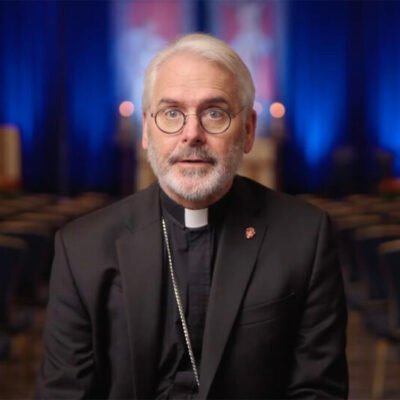(RNS) — Last week, a federal judge issued an injunction barring the state of Washington from enforcing an amendment to the state’s mandatory reporting law that would have required Catholic priests to inform authorities of child‑abuse disclosures made during confession. It’s hard to imagine the judge doing otherwise.
The situation arose as the result of a desire to include clergy among the classes of adults designated as mandatory reporters of child abuse or neglect. Fine. That’s in line with what most states’ mandatory reporting laws do. As the amendment’s principal sponsor, Sen. Noel Frame, a Seattle Democrat, told the Washington State Standard back in February, “The state does not have to be complicit when religious communities who engage in the practice of covering up abuse and neglect choose to do so.”
Here’s the rub.
Most states with mandatory reporting laws provide exemptions for clergy, along with other professionals who obtain information about child abuse or neglect “solely as a result of a privileged communication,” as Washington state law puts it. In Washington, these include parents and guardians, and attorneys, counselors and physicians in the course of professional employment.
After adding clergy to the list of mandatory reporters, however, Washington’s amendment goes on to affix the words “except for members of the clergy” to the beginning of the sentence exempting those who have received the information solely as a result of a privileged communication.
That’s seriously problematic for Catholic priests, who face excommunication if they knowingly reveal information they receive under the seal of confession. No wonder the Catholic bishops in Seattle, Spokane and Yakima filed suit and asked the court for an injunction. (Several Eastern Orthodox churches have filed their own lawsuit against the measure on similar grounds, but the current injunction only covers the Catholic case.)
When it comes to current First Amendment jurisprudence, nothing could be clearer than the Supreme Court’s refusal to let religious activities be treated less favorably than secular ones; see Fulton v. City of Philadelphia (2020). Washington’s new law is in violation of Fulton because it provides secular professionals with an exemption denied to religious professionals.
According to reporting by Rolling Stone, Washington State Attorney General Nick Brown told the law’s supporters at a private event that he “wished lawmakers had worked more closely with his office before passing the bill, warning that its narrow focus on clergy could make it hard to defend.”
Ya think? U.S. District Judge David G. Estudillo had little choice but to grant the injunction.
Now, there’s a case to be made that no one should be permitted to avoid reporting information about child abuse or neglect. Take attorneys. Under the crime-fraud exception, attorney-client privilege “does not cover statements made by a client to their lawyer if the statements are meant to further or conceal a crime.” Why not treat information about child abuse or neglect the same way? Which is not to say that anyone who reports information received by way of privileged communication couldn’t be excused from testifying in court.
If such a no-exemptions mandatory reporting law were to be put in place, it would create a serious challenge to the standard used by the courts to judge free exercise cases. Under the 1990 decision Smith v. Employment Division, any state law that is neutral and generally applicable cannot be challenged as a free exercise violation. It is hard to deny that a mandatory reporting law that incorporates an equivalent of the crime-fraud exception would meet that standard.
With five conservative Catholics on the Supreme Court, and several champing at the bit to overturn Smith, there’s every chance that “neutral and generally applicable” would go the way of all flesh.



